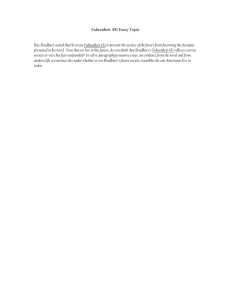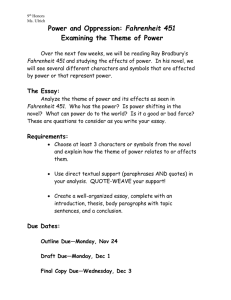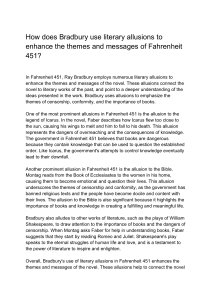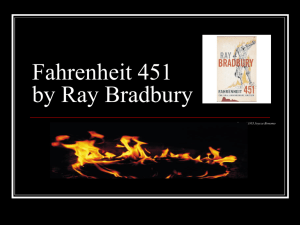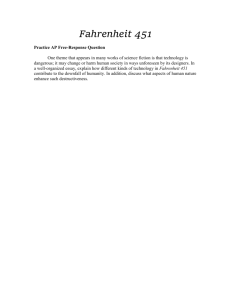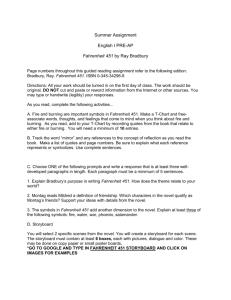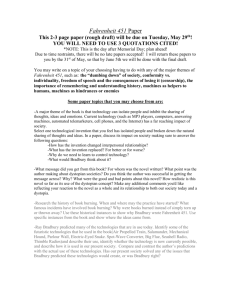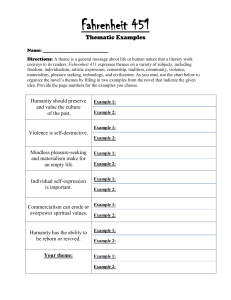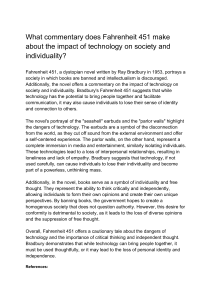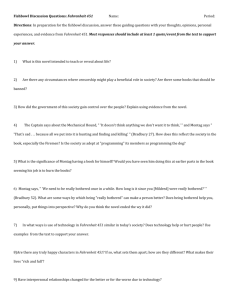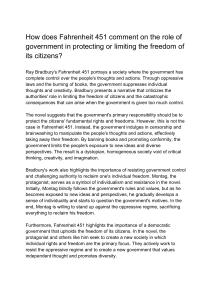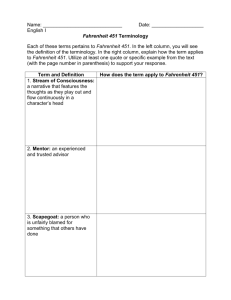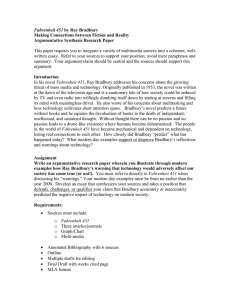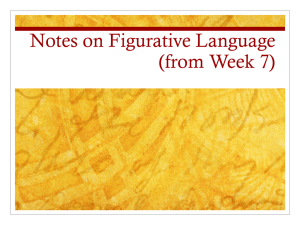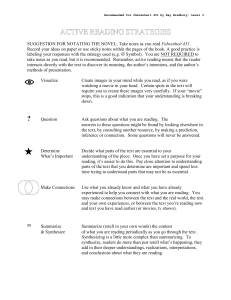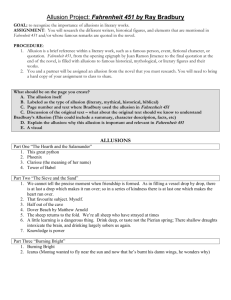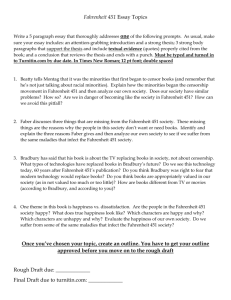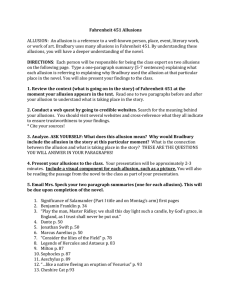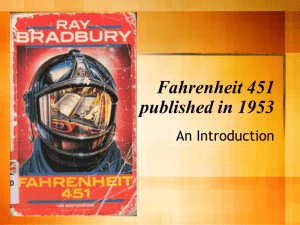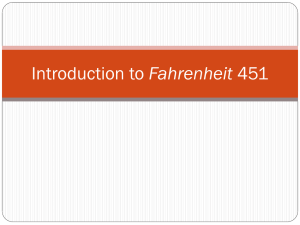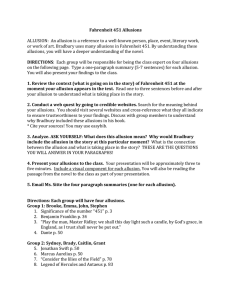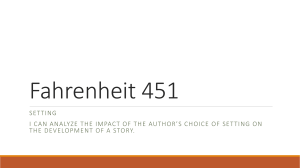English II Honors Fahrenheit 451 Garcia (agarcia
advertisement
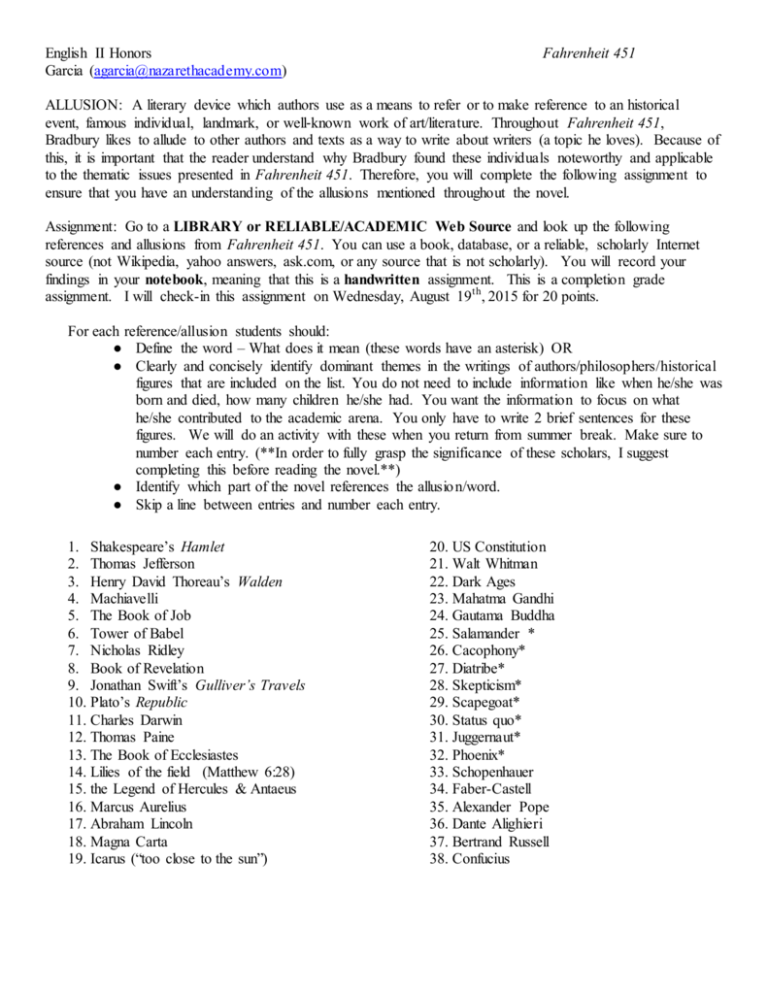
English II Honors Garcia (agarcia@nazarethacademy.com) Fahrenheit 451 ALLUSION: A literary device which authors use as a means to refer or to make reference to an historical event, famous individual, landmark, or well‐known work of art/literature. Throughout Fahrenheit 451, Bradbury likes to allude to other authors and texts as a way to write about writers (a topic he loves). Because of this, it is important that the reader understand why Bradbury found these individuals noteworthy and applicable to the thematic issues presented in Fahrenheit 451. Therefore, you will complete the following assignment to ensure that you have an understanding of the allusions mentioned throughout the novel. Assignment: Go to a LIBRARY or RELIABLE/ACADEMIC Web Source and look up the following references and allusions from Fahrenheit 451. You can use a book, database, or a reliable, scholarly Internet source (not Wikipedia, yahoo answers, ask.com, or any source that is not scholarly). You will record your findings in your notebook, meaning that this is a handwritten assignment. This is a completion grade assignment. I will check-in this assignment on Wednesday, August 19th , 2015 for 20 points. For each reference/allusion students should: ● Define the word – What does it mean (these words have an asterisk) OR ● Clearly and concisely identify dominant themes in the writings of authors/philosophers/historical figures that are included on the list. You do not need to include information like when he/she was born and died, how many children he/she had. You want the information to focus on what he/she contributed to the academic arena. You only have to write 2 brief sentences for these figures. We will do an activity with these when you return from summer break. Make sure to number each entry. (**In order to fully grasp the significance of these scholars, I suggest completing this before reading the novel.**) ● Identify which part of the novel references the allusio n/word. ● Skip a line between entries and number each entry. 1. Shakespeare’s Hamlet 2. Thomas Jefferson 3. Henry David Thoreau’s Walden 4. Machiavelli 5. The Book of Job 6. Tower of Babel 7. Nicholas Ridley 8. Book of Revelation 9. Jonathan Swift’s Gulliver’s Travels 10. Plato’s Republic 11. Charles Darwin 12. Thomas Paine 13. The Book of Ecclesiastes 14. Lilies of the field (Matthew 6:28) 15. the Legend of Hercules & Antaeus 16. Marcus Aurelius 17. Abraham Lincoln 18. Magna Carta 19. Icarus (“too close to the sun”) 20. US Constitution 21. Walt Whitman 22. Dark Ages 23. Mahatma Gandhi 24. Gautama Buddha 25. Salamander * 26. Cacophony* 27. Diatribe* 28. Skepticism* 29. Scapegoat* 30. Status quo* 31. Juggernaut* 32. Phoenix* 33. Schopenhauer 34. Faber-Castell 35. Alexander Pope 36. Dante Alighieri 37. Bertrand Russell 38. Confucius
